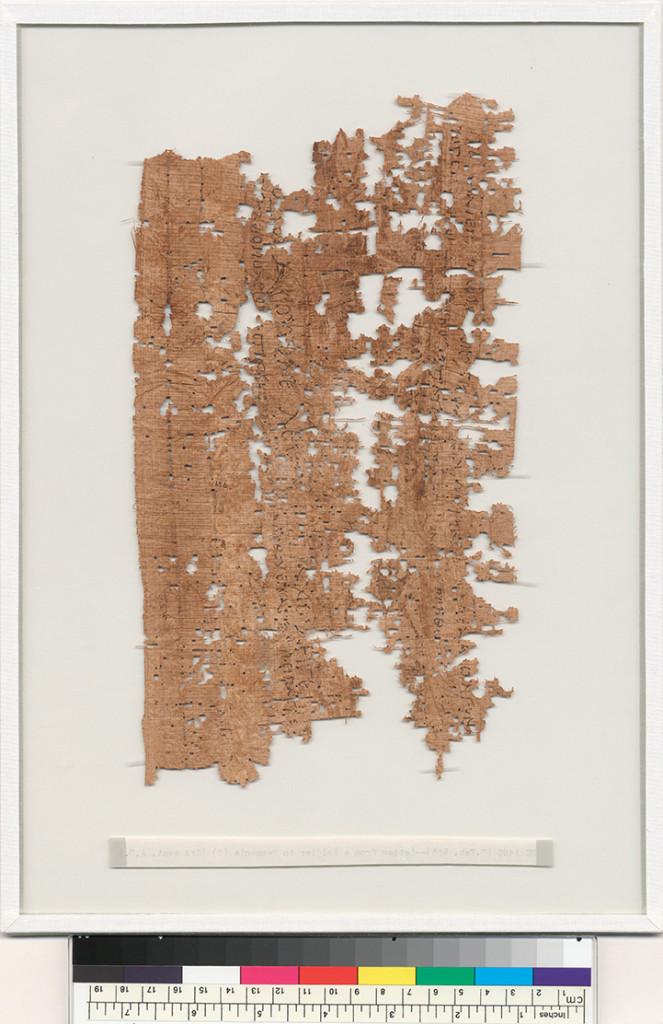A recently translated letter written 1,800 years ago shows that a Soldier’s life then was much like a Soldier’s life now.
The Egyptian Soldier, Aurelius Polion, wrote the letter while serving as a volunteer in the Roman Legion, in the Pannonia Inferior province in eastern Europe. He was probably posted in what is now western Hungary.
Polion wrote the letter to his mother, his sister and his brother. In it, he frets that they are not keeping in touch with him. “I am worried about you because although you received letters from me often, you never wrote back to me …,” he wrote on the thin paper known as papyrus. He goes on to say that he has written six letters with no response. “While away in Pannonia I sent [letters] to you, but you treat me so as a stranger,” he wrote. “I shall obtain leave from the consular and I shall come to you so that you may know that I am your brother.”
Although the Roman Army had a postal system, he appears to have entrusted the letter to a comrade who was returning home.
Archaeologists discovered the letter more than a century ago outside a temple in what was once the Egyptian town of Tebtunis. Historians have also found ancient contracts, petitions, declarations and tax receipts in the town. The majority of the documents date to the first three centuries A.D., when Egypt was under Roman rule.
The sheer number of documents found at the site meant that not all of them were translated. The poor condition of Polion’s letter was also a problem. It sat for a century, waiting for technology to catch up with it. Grant Adamson, a doctoral candidate at Rice University in the U.S. state of Texas, translated the letter using infrared images to make the writing more legible. Polion wrote it mostly in Greek. The Bulletin of the American Society of Papyrologists published the translation in early 2014.
If Polion did get permission to take leave, it would have taken him at least a month to travel from his station in eastern Europe to Tebtunis.
Egyptians of that time would have volunteered in the Roman Army for the same reasons people volunteer for armies today — as a paying job and to perhaps see the world. Polion may have enlisted in the Army and left Egypt not knowing where he was being sent — as is often the case today. And like today, Soldiers of that time occasionally had problems communicating with their families at home.

